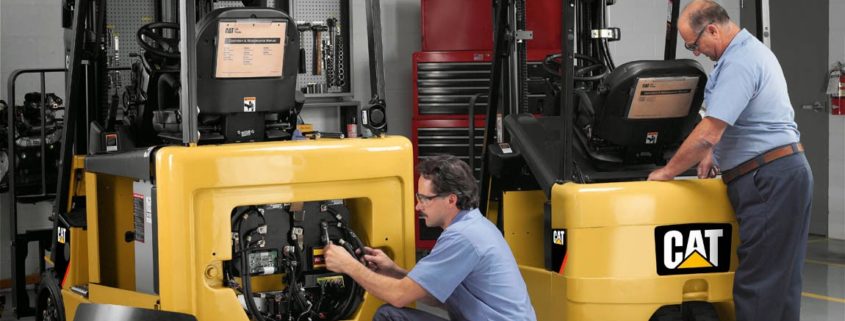Navigating the Future: Adapting Forklift Fleets for Success
The logistics industry stands at the precipice of significant transformation as we enter 2024, and making sure your forklift fleet is keeping up is key. With advancements in technology, shifting consumer expectations, and global challenges such as climate change, companies must adapt swiftly to stay competitive. One crucial aspect of this adaptation is optimizing forklift fleets to meet the demands of the evolving landscape.
Emerging Trends Shaping the Logistics Industry in 2024
1. Automation and Robotics: Automation continues to revolutionize the logistics sector, with robotics playing a pivotal role in warehouse operations. In 2024, we can expect to see a further integration of autonomous forklifts and warehouse robots, streamlining processes and enhancing efficiency.
2. Sustainability and Green Initiatives: Environmental sustainability has become a priority for companies worldwide. In the logistics industry, this translates to the adoption of eco-friendly practices, including electric forklifts, renewable energy sources, and optimized routes to reduce carbon emissions.
3. Data Analytics and IoT Integration: Data-driven decision-making will be ubiquitous in 2024, with logistics companies leveraging advanced analytics and Internet of Things (IoT) technology to optimize supply chain operations. Forklifts equipped with sensors and connected to centralized platforms will provide real-time insights, enabling proactive maintenance and route optimization.
4. Last-Mile Delivery Innovations: The last mile remains a critical and challenging aspect of logistics. Companies are exploring innovative solutions such as drones, electric delivery vehicles, and micro-fulfillment centers to enhance efficiency and meet the growing demands of e-commerce customers.
Adapting Forklift Fleets for Success in 2024
1. Invest in Electric Forklifts: With an increasing emphasis on sustainability, transitioning to electric forklifts can offer numerous benefits. Not only do they produce zero emissions, but they also tend to have lower operating costs and require less maintenance compared to traditional diesel or gas-powered forklifts.
2. Embrace Automation: Incorporating autonomous forklifts into your fleet can significantly improve efficiency and safety in warehouse operations. These robots can handle repetitive tasks, navigate complex environments, and work alongside human operators, freeing up valuable time and resources.
3. Implement Predictive Maintenance: Leveraging IoT technology, implement predictive maintenance strategies for your forklift fleet. By monitoring key performance indicators and utilizing data analytics, you can identify potential issues before they escalate, reducing downtime and optimizing equipment lifespan.
4. Employee Training and Upskilling: As technology continues to reshape the logistics industry, investing in employee forklift training and upskilling is crucial. Equip your workforce with the necessary skills to operate and maintain advanced forklift technologies effectively, ensuring smooth transition and maximum productivity.
5. Collaborate with Technology Partners: Partnering with technology providers and industry experts can provide invaluable insights and support in navigating the complexities of fleet optimization. Stay abreast of the latest advancements and collaborate with partners to tailor solutions that align with your specific operational needs.
Whatever you are doing to make sure your business is ready for 2024, we are right their with you to help you out. Find out more about how we can work with you to make sure you have the forklifts you need for your logistics business and chat to our friendly team today.



